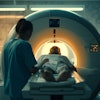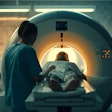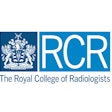
LONDON (Reuters) - The new head of Europe's drugs watchdog said on Friday there was an acute need to tighten regulations on medical devices, adding to pressure for radical change in the wake of a global scandal over French-made breast implants.
"I see an urgent need to regulate devices at the same level of science and attention as with drugs," Guido Rasi, executive director the European Medicines Agency (EMA), told Reuters.
Medical devices are currently regulated in the European Union under the same "CE mark" scheme that is used for household appliances such as electric toasters, a notably relaxed regime that has been criticized by doctors.
 Guido Rasi, executive director of the European Medicines Agency.
Guido Rasi, executive director of the European Medicines Agency.
In contrast to prescription medicines, devices need only a simple quality certification before being sold to the public.
Growing concerns about breast implants made by the now-defunct French company Poly Implant Prothese (PIP) have focused attention on regulation and could accelerate changes to rules governing the medical technology sector.
"This might speed up some decisions," Rasi, who took over as head of the London-based EMA in November, said in his first published interview.
New proposals from the European Commission on regulating devices, including measures for more premarket testing and postmarketing surveillance, are set to go before EU ministers later this year.
Unlike the U.S. Food and Drug Administration (FDA), the London-based EMA only has a mandate to regulate drugs, not devices.
But Rasi said medicines and devices were increasingly converging as some products, such as coronary stents, are used to deliver drugs, so the EMA would in the future need to look closely at the "borderline" area between the two fields.
Whether the EMA should eventually have a full remit for devices as well as drugs is up to politicians. "We are civil servants; we will do what we are told to do," Rasi said.
French Health Minister Xavier Bertrand also highlighted Europe's regulatory shortcomings on Thursday, arguing that devices should go through the same rigorous review as medicines, with approval given either by national regulators or the EMA.
Rasi cautioned, however, that overhauling the regulatory system could be a slow process.
"There is resistance from sectors of the industry and resistance from some national authorities, so I don't expect anything fast, but we need something for public health protection," he said.
Major makers of medical devices -- which range from stents and artificial heart valves to replacement hips and knees, as well as breast implants -- include Johnson & Johnson, Medtronic, Boston Scientific, Abbott Laboratories, Allergan, and Smith & Nephew.
By Ben Hirschler
Last Updated: 2012-01-06 11:26:27 -0400 (Reuters Health)
Copyright © 2012 Reuters Limited. All rights reserved. Republication or redistribution of Reuters content, including by framing or similar means, is expressly prohibited without the prior written consent of Reuters. Reuters shall not be liable for any errors or delays in the content, or for any actions taken in reliance thereon. Reuters and the Reuters sphere logo are registered trademarks and trademarks of the Reuters group of companies around the world.


















